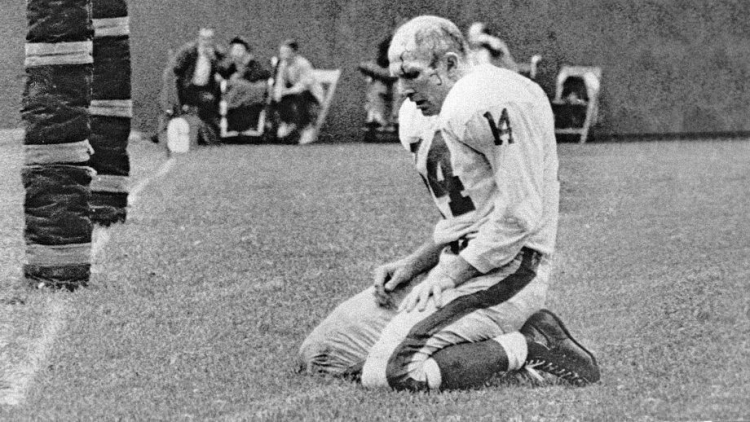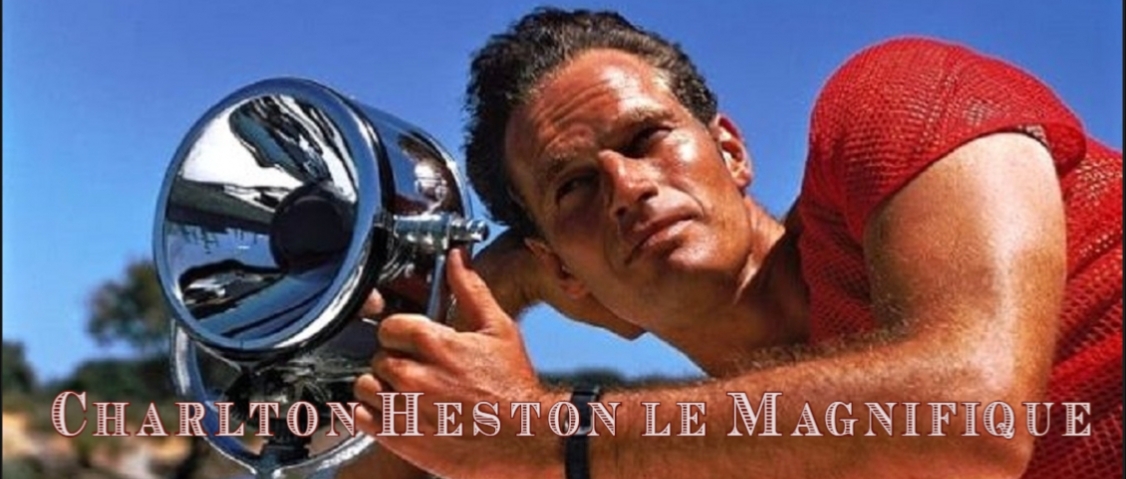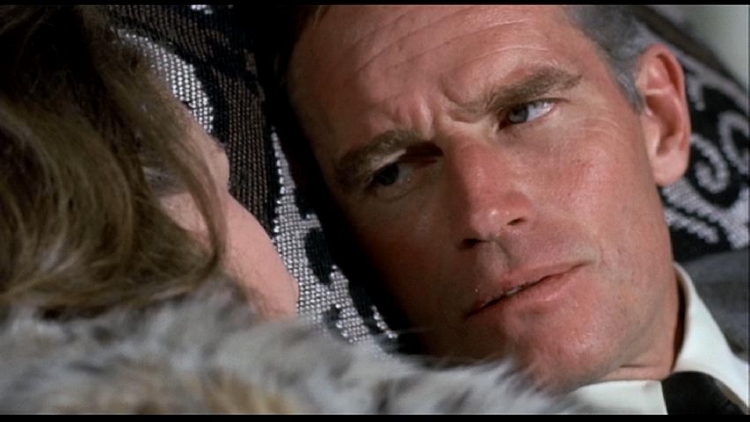Heston plays "Cat" Catlan, a 40-year-old quarterback for the New Orleans Saints. He's just suffered through a horrible preseason and is being pressed hard by a younger quarterback. Although his coach (John Randolph) insists he has two or three good seasons left, Catlan is seriously considering retirement. He's got two job offers on the table, a management job with an IBM-like computer company and a sales job working for a former teammate (Bruce Dern), who walked away from the game a couple of years earlier and cashed in on his fame to build the largest dealership in the state. Catlan also has a shaky marriage to a successful fashion designer (Jessica Walter) and a very friendly acquaintance (Diana Muldaur) who wants to have a fling with him.
"Number One" may have been the first sports movie to take a serious look at aging and retirement, and, although the Saints and other NFL teams cooperated in making the movie, it doesn't sugarcoat the world of professional sports. The film acknowledges the limited careers of even the best players and how ownership views it as a business, not a game. Despite the fact that his teammates know they are being used, they still want to hold onto as much of the glory as they can. It's the conflict between the cynicism that's occasionally expressed, especially by Dern, and the "good old college try" that the players still want to give that is the best part of "Number One."
"Number One" has some redeeming features though. As you'd expect from a movie set in New Orleans, it's got a very good jazz score, bolstered by an appearance by Al Hirt and his band. And the acting by the principals is first rate. Heston was 45 when the film was made (right after "Planet of the Apes") and he was in great shape. This isn't one of his showier performances, but there's a good bit of nonverbal acting involved, and Heston is quite effective. Walter, Muldaur, and Dern also deliver good performances as well. And it's always fun to see the 1969 version of state-of-the-art computer technology, a massive machine that occupies an entire room.
"Number One" isn't always a believable movie, but it is an interesting one, and it takes a serious look at aging and the nature of professional sports, subjects most sports movies of that era avoided like the plague. Its treatment of these subjects, and, indeed, most of the drama, wind up being too shallow, but "Number One" is well acted and provides a good period look at the game of football. It's not a Super Bowl contender by any means, but, on balance, it finishes above .500.

"Number One" est peut-être le premier film sportif à aborder sérieusement la question du vieillissement et de la retraite et, bien que les Saints et d'autres équipes de la NFL aient coopéré à la réalisation du film, celui-ci n'enjolive pas le monde du sport professionnel. Le film reconnaît que même les meilleurs joueurs ont une carrière limitée et que les dirigeants considèrent le sport comme une activité commerciale et non comme un jeu. Bien que ses coéquipiers sachent qu'ils sont utilisés, ils veulent conserver le plus de gloire possible. C'est le conflit entre le cynisme qui est parfois exprimé, en particulier par Dern, et le "good old college try" que les joueurs veulent encore donner qui est la meilleure partie de "Number One".
"Number One" a tout de même quelques points positifs. Comme on peut s'y attendre d'un film se déroulant à la Nouvelle-Orléans, il contient une très bonne musique de jazz, renforcée par l'apparition d'Al Hirt et de son orchestre. Le jeu des acteurs principaux est de premier ordre. Heston avait 45 ans lorsque le film a été tourné (juste après "La Planète des singes") et il était en pleine forme. Ce n'est pas l'une de ses performances les plus spectaculaires, mais il y a une bonne part d'action non verbale et Heston est très efficace. Walter, Muldaur et Dern livrent également de bonnes performances. Et il est toujours amusant de voir la version 1969 de la technologie informatique de pointe, une machine massive qui occupe une pièce entière.
"Number One" n'est pas toujours un film crédible, mais il est intéressant et il jette un regard sérieux sur le vieillissement et la nature du sport professionnel, des sujets que la plupart des films sportifs de l'époque évitaient comme la peste. Son traitement de ces sujets et, en fait, la plupart des drames, finissent par être trop superficiels, mais "Number One" est bien interprété et offre un bon regard d'époque sur le jeu de football. Ce n'est pas un candidat au Super Bowl, loin s'en faut, mais, tout compte fait, il termine au-dessus de la moyenne (0,500).


